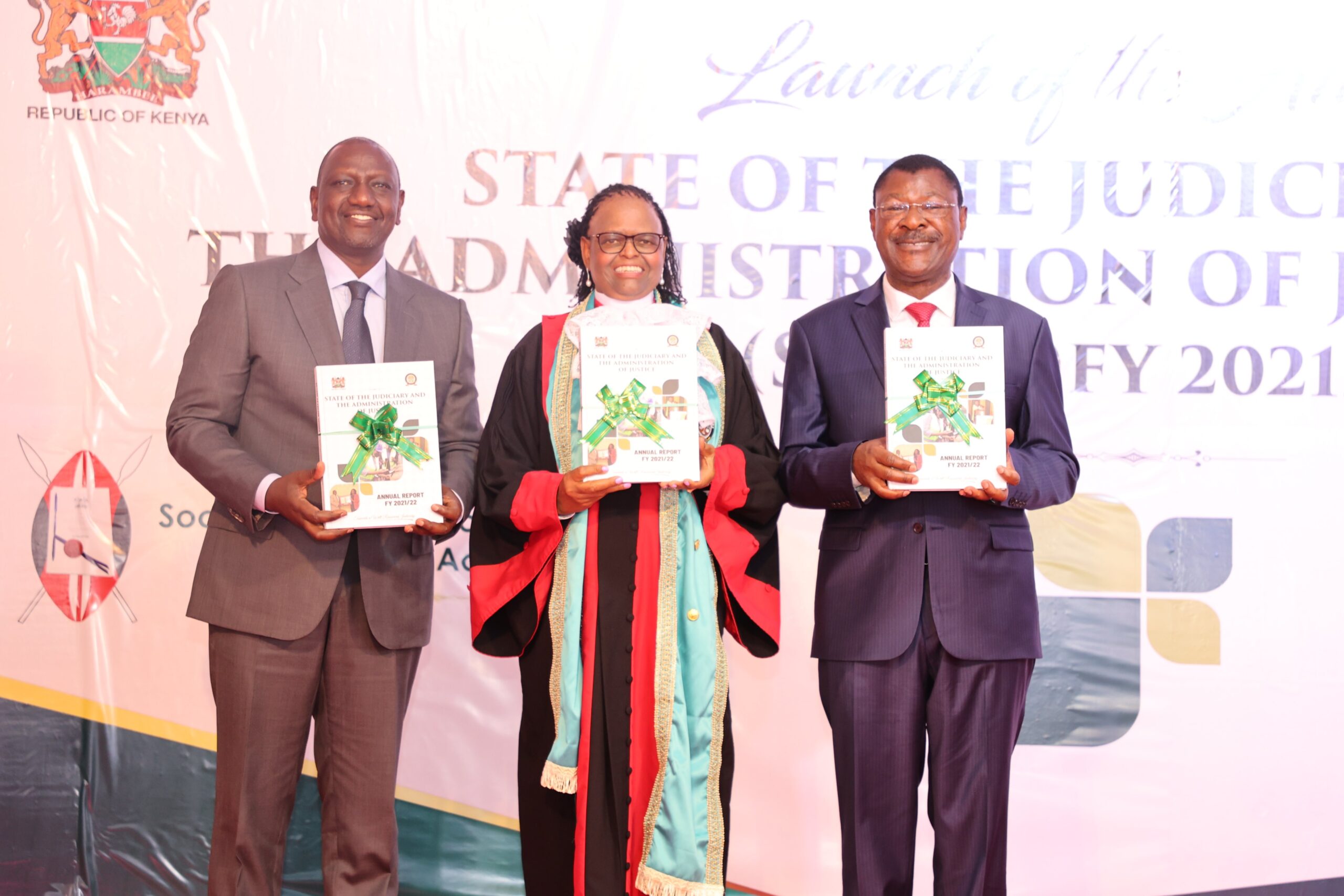Chief Justice Martha Koome has sought to defend the Supreme Court over usage of the phrase ‘hot air’ in its presidential election petition judgement.
According to CJ Koome, the phrase – which sparked uproar from the Azimio la Umoja One Kenya coalition party side – was not used by the 7-judge bench in bad faith.
The CJ, speaking in an interview with Citizen TV on Friday, defined the phrase as just an outcome of the courts fact-finding mission following evidence that was presented before it by the legal team representing the Raila Odinga-led faction.
“If you read the judgement and followed the reasoning, there is a reasoning for each of those conclusions…why the court made those remarks. Those are English terms, perhaps they angered some people, but they were not meant to offend anybody,” she said.
“It was just an expression of the finding of the evidence that was presented before the court because, for instance; there were some Form 34As which were brought, relying on evidence which was hearsay.”
The Chief Justice went further to point out that some of the forms that were brought before the court as evidence had been manipulated.
“Nonetheless, the court went ahead to look at the original Form 34As to compare with those forms which were alleged to have been interfered with, and the court found that those forms were actually photoshopped.”
“The court went ahead to ask for the ballot boxes from all the polling stations where those allegations emanated from, where there was said to be interference, and Kenyans watched when scrutiny was done of those original forms in the boxes comparing them with original forms that were brought by IEBC; that exercise took no less than 36 hours, and that’s why perhaps the court said we did all this but it turned out to be a wild goose chase.”
The remarks from the CJ come after NARC-Kenya party leader Martha Karua and the Muslims for Human Rights (MUHURI) group filed a petition before the East African Court of Justice (EACJ) challenging the conduct of the Supreme Court and the IEBC during the August 9 presidential elections.
In a statement released on Friday, Karua and Muhuri maintained that both the Supreme Court and the IEBC failed Kenya’s democracy and infringed on the human rights of Kenyans when they ratified President William Ruto’s win.
“We went into the elections with a severely challenged election management body. We had hoped that it would overcome those challenges, with the support of stakeholders and the constitutional ecosystem put in place to protect its independence and advance the proper execution of its mandate. That did not happen,” reads the statement.
“In 2022, the IEBC did not register over 8 million eligible voters; it did not make a serious attempt to rid its problematic voter register of all the issues identified from previous audits. It did not audit the Register within the legally stipulated time or publish the Register as required by law.”
By Fred Azelwa.
